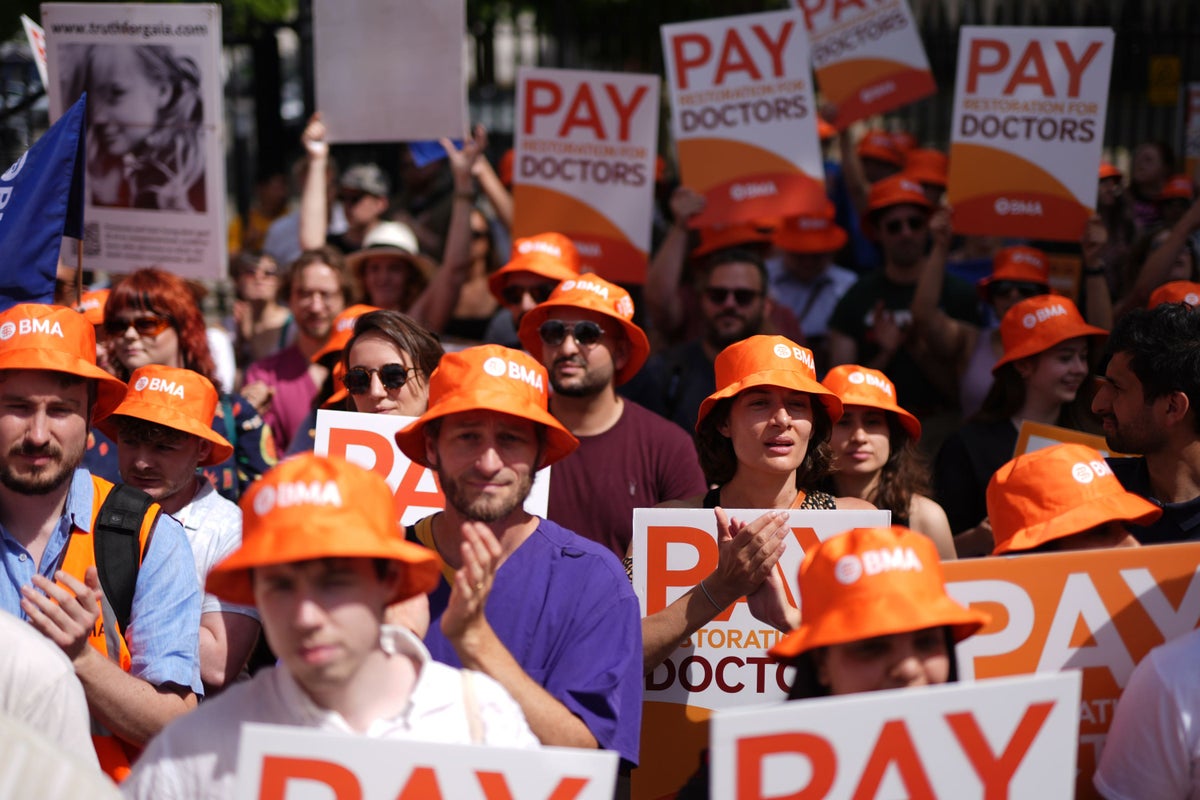Resident Doctors in England to Strike Over Pay Dispute
Resident doctors in England, represented by the British Medical Association (BMA), are set to embark on a five-day strike from 25 to 30 July. This action is part of an ongoing dispute over pay, with the BMA stating that negotiations with Health Secretary Wes Streeting have not resulted in a credible offer for the medical professionals. The decision to strike follows a significant vote among resident doctors, who overwhelmingly supported the move.
Support kami, ada hadiah spesial untuk anda.
Klik di sini: https://indonesiacrowd.com/support-bonus/
The BMA reported that 90% of those who participated in the vote were in favor of the strike, with a 55% turnout. This level of support has provided the union with a clear mandate to take action until January 2026. The union is demanding a substantial pay increase of 29.2%, aimed at addressing what they describe as “pay erosion” since the 2008/09 academic year. The BMA has given the government two weeks to return to the negotiating table and present a more favorable proposal.
Despite the union’s demands, Number 10 has indicated that it will not reopen discussions on pay. The government argues that resident doctors have already received the highest pay award in the public sector for two consecutive years. However, the BMA highlights that previous strikes have led to the postponement of 1.5 million medical procedures, raising concerns about the impact on patient care.
Key Points of the Dispute
- Pay Increase Demand: The BMA is seeking a 29.2% pay uplift to counteract the effects of pay erosion since 2008/09.
- Voting Outcome: A high percentage of resident doctors supported the strike, showing strong backing for the action.
- Government Stance: The government maintains that resident doctors have received the best pay increases in the public sector over the past two years.
- Impact of Strikes: Previous strikes have resulted in a significant number of postponed medical procedures, highlighting the potential consequences of further industrial action.
What Comes Next?
With the strike scheduled to begin in mid-July, the situation remains tense. The BMA is urging the government to reconsider its position and engage in meaningful negotiations. Meanwhile, the government continues to emphasize its commitment to the current pay structure, despite the union’s concerns.
Support us — there's a special gift for you.
Click here: https://indonesiacrowd.com/support-bonus/
The dispute underscores the broader challenges facing the healthcare sector, where staff are increasingly frustrated with stagnant wages and rising workloads. As the strike date approaches, the focus will be on how the situation unfolds and whether a resolution can be reached before the planned industrial action takes place.
Broader Implications
The ongoing conflict between the BMA and the government reflects a growing dissatisfaction among healthcare workers across the UK. The demand for better pay and working conditions is not limited to resident doctors but extends to various roles within the National Health Service (NHS). This dispute could set a precedent for future negotiations and may influence similar actions in other sectors.
In addition to the immediate impact on hospital operations, the strike could also affect the morale of healthcare professionals. Many are concerned that the lack of progress in negotiations could lead to further unrest and a decline in the quality of patient care.
As the situation develops, it will be crucial to monitor the responses from both the BMA and the government. The outcome of this dispute could have far-reaching implications for the future of the NHS and the working conditions of its staff.







